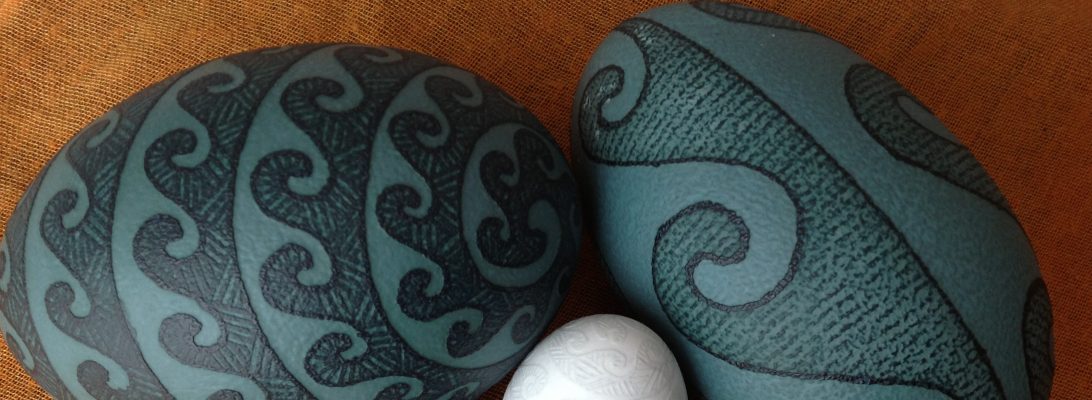Sappan wood gives quite a nice purple over a very quick dip in saskatoon berries dye (light blue)


Sappan wood gives quite a nice purple over a very quick dip in saskatoon berries dye (light blue)

Both shades come from the same dye, it works fast, not sure though how it will handle the sun.

I don’t know how people get bright red from madder, this is all I can get, and that on a brown egg.

If you keep an egg in elderflower dye for a while, it gives an intense almost mustardy greenish yellow. Contrasts well with the red of sappan wood.
First egg in a dye gives a color like this, then it becomes pale orange towards coral.

Made some more eggs, some were attempts to copy Lithuanian drop-pull eggs, while others were inspired by Lithuanian patterns. A number of dyes – two of coreopsis (extract and fresh), elderflower (dried), sappan wood, madder, saskatoon berries (frozen), I think that’s it though I might have forgotten something. Mainly with alum, one egg had sappan wood with iron on background.
This is one of the Asian medicinal herbs, butterfly pea (clitoria ternata) that produces a stunningly blue liquid, which I didn’t have very high expectations of, but still had to try. On an egg it came out with an unimpressive greenish on the left. The yellow from dried elderflowers on the right is here just for comparison.

We have some tickseed coreopsis hybrid, the non-tinctoria variety, and so I had a chance to continue my coreopsis experiments from last year. I used some semi-fresh mainly wilted flowers and cooked them up in a usual way, then added alum. It gives colors that are very similar to the fresh flower of the tinctoria variety which I grew and then cooked up last summer. The shades are different from the coreopsis dye extract. While the extract gives what I would call a true gold, the dye from fresh flowers gives at the beginning a proper dark orange, almost pumpkin, and after a short time wears out and begins to give a pastel orange, a bit cold, towards coral.

In the photo left to right: coreopsis extract, then first egg from coreopsis fresh flowers, then third or maybe fourth egg in the day from fresh flowers that’s a few days old.
Some kind of chamomile on the left and some kind of artemisia (mugwort) on the right. Both with alum.

And here are both after iron water bath.

This year, I tried to replicate some of the traditional Lemko patterns from Elyjiv’s book with natural dyes. Of course, Elyjiv’s eggs were not made with natural dyes, neither, most likely, those Elyjiv copied from, but I thought this experiment would be interesting. Sometimes the dyes do not cooperate, and that goes for natural dyes even more than for aniline ones. Sometimes I used brown eggs, and that, of course, changed the colors as well. But, anyway, this was fun. 